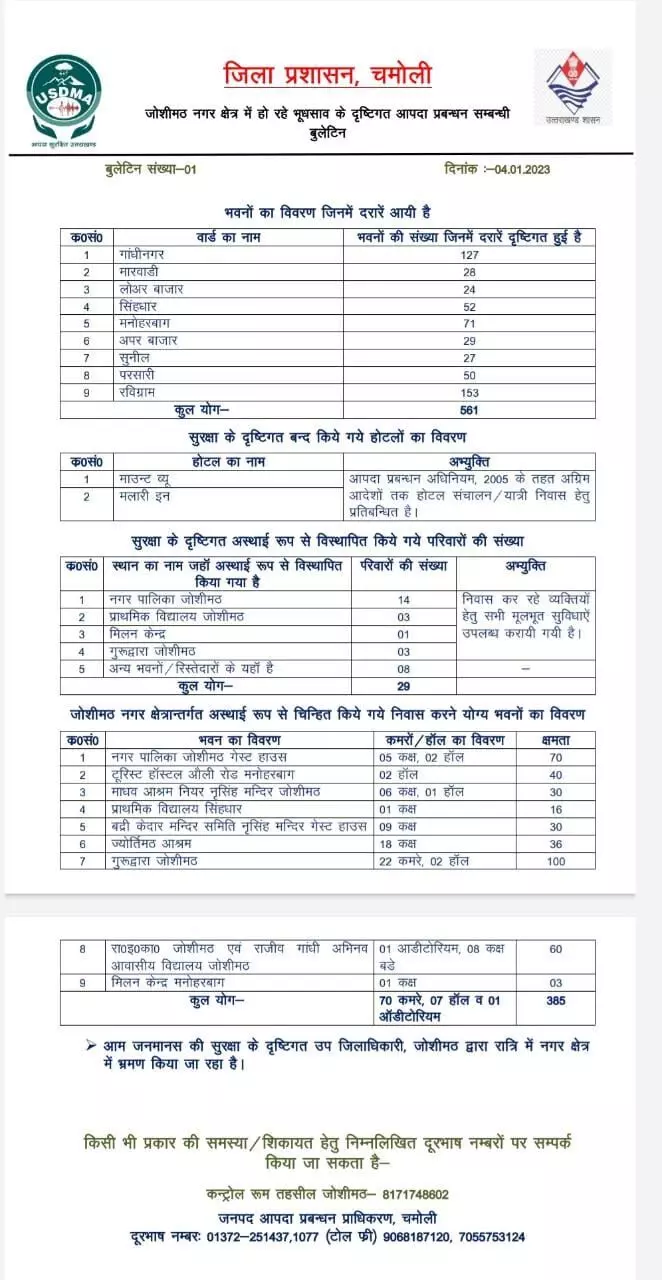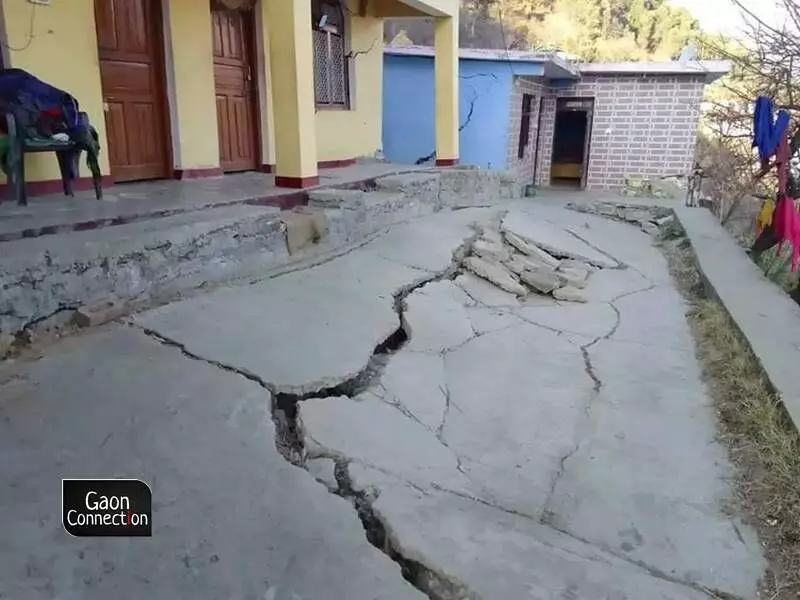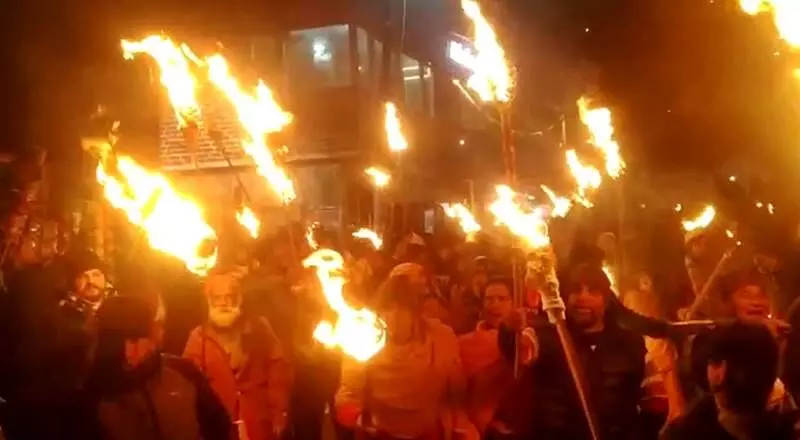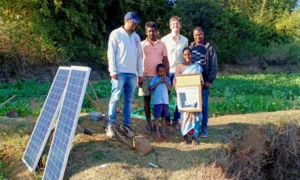Reacting to the fresh cracks and the sinking of land in Uttarakhand’s Joshimath in Chamoli district, local residents organised protests yesterday, on January 4 and took out a torch march.
“Tomorrow [January 5] no vehicle’s movement will be allowed and protests will intensify. The government is not listening to our grievances and we need to maintain sustained protests for three consecutive days. We will gherao the officials who will visit Joshimath tomorrow,” Atul Sati, convenor of the Joshimath Bachao Andolan said while addressing a swarming crowd of protesters yesterday.
Joshimath is the gateway to the holy shrines of Badrinath and Hemkund Sahib as well to the tourist hotspot of Auli. The town rests on ecologically fragile terrain which is constantly sinking due to the adversely changing climate as well as unsustainable construction in the area.
The town which is inhabited by about 30,000 people is gradually getting depopulated as the local residents are migrating to safer areas due to the impending fear of being crushed by the debris of their own houses. As per the Chamoli district administration, a total of 561 houses and two hotels have developed cracks recently and a total of 29 families have left their homes and are living in temporary accommodation.

Also Read: The Sinking Feeling in Joshimath
“The intensity of cracks across Joshimath have increased recently. Be it roads, agricultural fields, hotels, resorts or the homes of residents, the cracks are everywhere.
I am extremely concerned & deeply empathize with the alarming “sinking” of the town of #Joshimath. In this message, I share two actionable suggestions for the Govt of #Uttarakhand. I urge the state govt to consider adopting these as a part of the regional mitigation action plan. pic.twitter.com/DDnlpd59Xp
— Anoop Nautiyal (@Anoopnautiyal1) January 4, 2023
The government is contemplating DPRs [detailed project report], surveys, studies and research but I would suggest that the foremost need is to evacuate thousands of people living in Joshimath,” Anoop Nautiyal, founder of the Dehradun-based Social Development for Communities Foundation said in a post on Twitter.
Govt assures action
Meanwhile, Uttarakhand Chief Minister Pushkar Singh Dhami was quoted as saying that he will be visiting Joshimath in the coming days and assured of a workable solution.
“I will be visiting Joshimath in the coming days and initiate steps to handle the situation. All the reports will be monitored and all the required steps will be taken. I have had a word with the Municipal Corporation chairman Shailendra Pawar,” the chief minister was quoted.
Also, Rajendra Hatwal, the media incharge of the ruling party [BJP], stated that Ranjeet Sinha, the secretary of the state disaster management department along with a team of geologists from the Indian Institute of Technology Roorkee will reach Joshimath today to assess the situation.
“The secretary will meet the affected families and the experts will identify the measures needed to resolve the situation at the earliest,” Hatwal told the press.
Meanwhile, the all construction activities in the area have been suspended in consideration of the Disaster Management Act, 2005. These suspension covers all construction by National Thermal Power Corporation [NTPC], construction inside tunnels and also at bypasses.

Gaon Connection’s report on Joshimath
As part of its Ten Part Series to mark ten years of the organisation, Gaon Connection recently published a detailed report on the sinking terrain and Joshimath which mentioned that maximum sinking is observed in the wards of Ravigram, Gandhinagar and Sunil.
Besides, extensive cracks and sinking is visible along the Auli-Joshimath road, as documented in a report submitted by an expert team of geologists, who surveyed the Joshimath area in August this year.

This multi-institutional team was set up by the Uttarakhand State Disaster Management Authority. Piyoosh Rautela (Executive Director, Uttarakhand State Disaster Management Authority) and MPS Bisht (Director, Uttarakhand Space Application Centre), had cautioned of disastrous consequence of an underground tunnel dug by the National Thermal Power Corporation (NTPC) for hydropower project in 2009.
In the process of tunnel excavation, the machinery punctured the aquifer, resulting in discharge of about 60-70 million litres of water daily. In their report published in Current Science, they clearly stated that this large-scale discharge, the implication of which was negligibly visible around then, will lead to subsidence in future. Rautela was also part of the team who surveyed the area in August this year.
There is a history of subsidence and fragility of this region, Saraswati Prakash Sati, a geologist and head, department of basic and social science, VCSG Uttarakhand University of Horticulture and Forestry, Rani Chauri, Gharwal, earlier told Gaon Connection. “The terrain between Joshimath and Tapovan is situated on old landslide material and it was in the late 60s that the Joshimath began to subside at many locations,” he said.
With inputs from Megha Prakash and Santosh Kunwar in Uttarakhand
















